
This brings me back to my initial question: do you remember the trend of blaming individual years for how bad things were? This understandable yet profoundly flawed take that all of our deeply rooted societal maladies, the result of decades (if not centuries) of systemic injustices designed to keep the powerful in power, could be magically blamed to just one nasty solar cycle and not, say, literal human greed and widely platformed bigotry? I certainly remember it. I recall when "2016 was the worst year ever" and I remember when "2017 was actually the worst year" and I certainly have not forgotten how 2020 became the "ultimate worstest year" because of that pesky pandemic we all know and loathe.
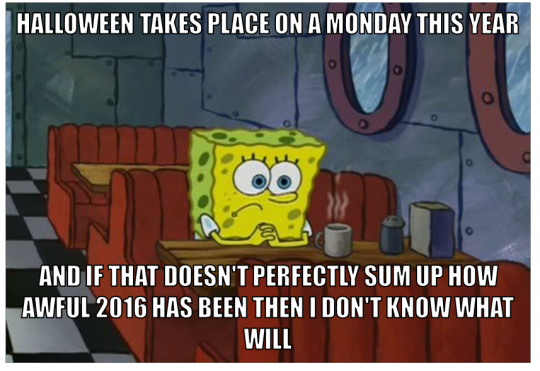
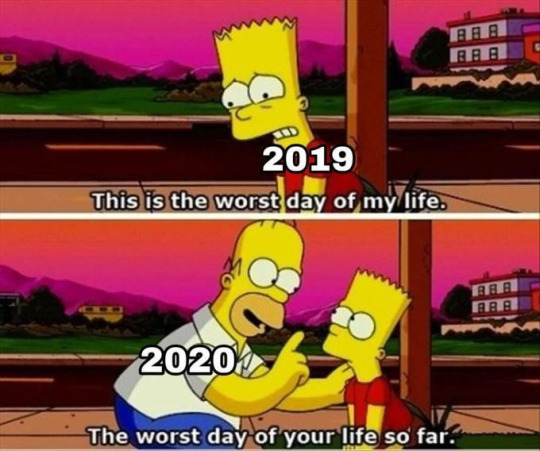

Afterwards, the trend just stopped. Its existence became moot as the world never truly left 2020: there was still a pandemic, there were still the same sociopolitical issues, the spectre of all out Authoritarianism still hung above us, more vile and dangerous than ever before, with a new war on the horizon and human rights getting stripped away little by little, piece by piece. It became clear that "X is the Worst Year" wasn't working anymore as a coping mechanism, that the dark times would not suddenly go away at the break of dawn and that every single day felt a little more bleak, a little less hopeful...
So, anyway, 2022 sure was a bad year, uh? It was quite terrible on almost every possible front to the point that the pandemic felt like the least of our troubles - and that is, indeed, saying a lot. However, I will tell you it was actually a great time for videogame releases. I mean, the game industry as a whole is still wretched and dehumanizing as all facets of our corporate-led existence but, purely in terms of interactive videoludic titles we could actually play and enjoy, 2022 was one of the better times. As such, I have endevoured to write my own completely arbitrary, subjective end-of-the-year list of games I have liked the most, according to my own personal sensibilities which do not, in anyway, reflect anyone else's taste and opinions. This ranking shall be only comprised of games I played, not games some of you might have played, and it will not be based on any "objective metrics" taken from "professional review compiling websites" that some people on the Internet take as the Word of God. Essentially, this is my list and I do what I want with it. Is that clear? Splendid!
As an addendum, most entries in this article will come provided with a link to my original set of posts, impressions and sporadic thoughts I compiled on the various subjects in review over at the "Free Speech" website.
-
I am going to start this venture with the obligatory special mentions, titles that were almost good but didn't quite make the cut for different reasons. The "Close But No Cigar" category, if you will.
-
Digimon Survive (Hyde/Bandai Namco)
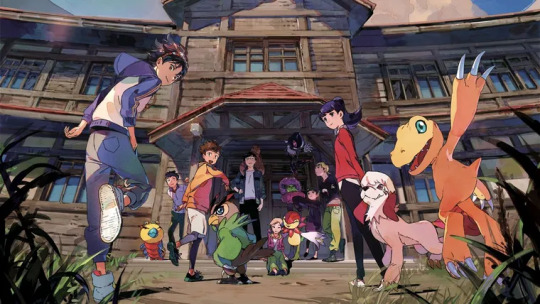
The disappointment is strong with this one: it stings my skin, envenomates my bloodstream and slowly kills the inner child living inside me, his corpse rotting within the deepest recesses of my blackened soul. Poetic license aside, the latest interactive entry in the classic "Monsters of the Digital Persuasion" franchise is the evident produce of a much troubled history as it very much feels like its narrative is the confounding result of two distinguished directions clashing with one another in a bid to deny each other's existence.
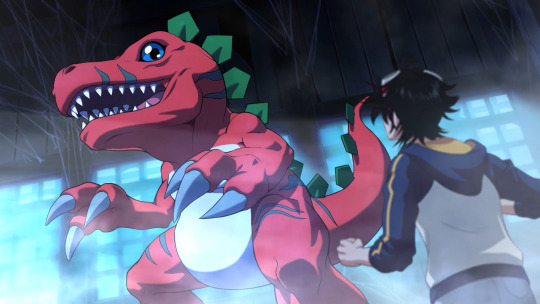
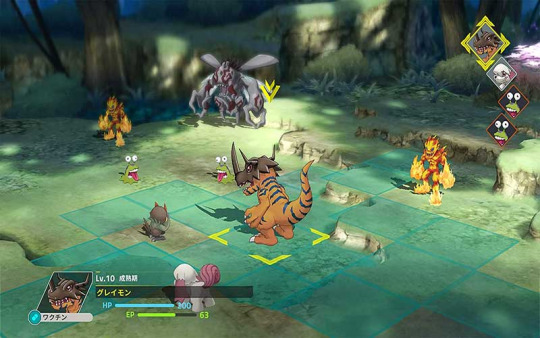
At its (gameplay) core, Digimon Survive is a perfectly fine, sufficiently engaging Tactical RPG, one that's uncharacteristically easy and accessible for a series usually lacking ease of access for newcomers. The tragic irony is that the meandering, messy, incoherent story of this game is decisively aimed exclusively at veteran Digimon fans: it builds itself off the original anime from 1999 and one's own nostalgia for it as a means to subvert expectations. It establishes all the familiar elements only to pull the rug from under the intended audience, to separate itself from the source material as much as possible, to take the franchise in a more perceived "mature" direction. That, in itself, was not the plot-destroying issue that plagued this game; what actually killed it was its bewildering decision to perform a 180° turn on its rug-pulling antics, place the carpet right back beneath our feet and pretend all of its tonal, thematic and narrative stakes made up to a point didn't matter. The attempted deconstruction of its own legacy effectively defaults to just a dull reconstruction of said legacy, thoughtlessly aping the happenings from the original show sans the necessary context to make any of it work. Whatever vision Digimon Survive might have had was systematically quashed by its unwillingness to commit to the bit. It's the kind of cop-out, faithless writing that I cannot condone. As the intended audience for this game, my heart weeps at the loss of potential.
-
Unhappy Raccoon (XD Inc.)
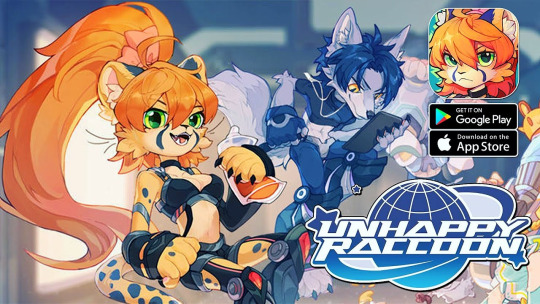
In many ways, the bizarrely named Unhappy Raccoon is very close to be my favoured Roguelike Action game experience. It is stylish, colourful, fast and approachable in terms of its difficulty. Unfortunately, it's a mobile title what comes with a certain amount of predatory in-game purchases and, as such, I cannot in good faith recommend it to anyone. That is a crying shame for I would have pleasurably shilled money to buy it had it been a release bereft of such unconscionable features. It also would have not hurt being able to play it with an actual controller, I'll tell you that much for free.
-
Sonic Frontiers (Sonic Team/SEGA)
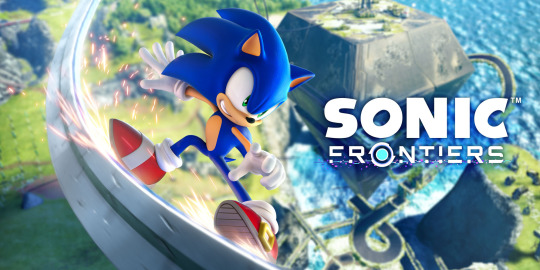
If I were a sodding believer of quantifying the value of Art through an arbitrary numerical score, then Sonic Team's latest "cute" effort would have been the embodiment of a 6/10 - and I am being generous here. It sports a solid core gameplay that lures you into its world with the promise of free roaming fun but it's ultimately burdened by too many terrible ideas, gimmicks and time-wasting nonsense to properly live up to its promise. My positive first impressions dissipate into unadulterated frustration as I am forced to stop playing a "Sonic" game I enjoy in order to herd a bunch of exploding critters, solve tedious puzzles or beat the world's worst pinball machine in order to earn "The Privilege" of fighting the area boss, all of which being close to unwieldy experiences at the best of times. The so-called plot isn't up to snuff, either. It's a title that feels simultaneously unfinished and overly designed, wrapped in a well-meaning yet misguided attempt to bring "depth" to its characters in a manner I would define as wholly unsatisfying. Its potential was limitless. Its execution, mediocre.
-
Fasten your seatbelts and hold on to your unsolicited opinions, oh dear readers. The real list begins now.
-
10) Lil Gator Game (MegaWobble/Playtonic Games)
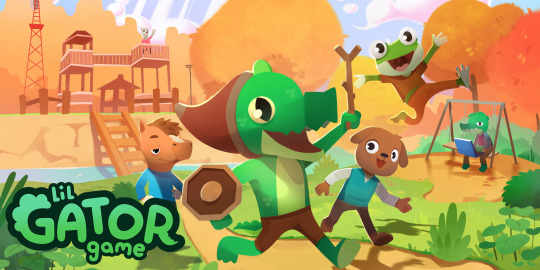
The most precious, adorable little gem with a deceptively clever shine to it. Lil Gator Game is built around a child's imagination as they play-pretend their way into a Zelda-esque adventure, with friends and strangers alike, in an elaborate scheme to convince their busy older sister to join. They waddle around wholesomely in a well-designed sandbox, wholesomely smashing cardboard monsters, talking to wholesome NPCs who are in on the "Lil Game" and generally exuding pure vibes of wholesomeness - with but a tinge of subtextual melancholy as the dreaded "grown up time" looms on the horizon. The strength of the conceit informs the execution of its themes, both mechanically and narratively.
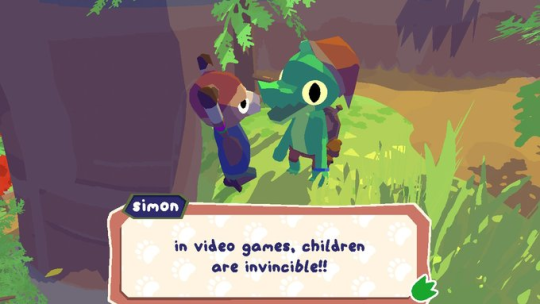
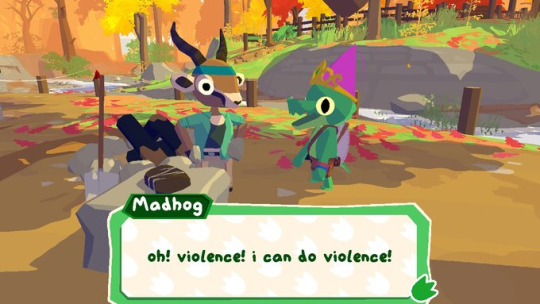
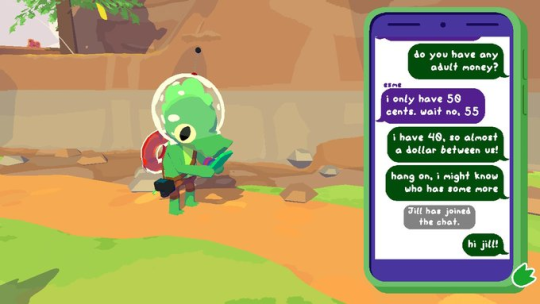
The core design philosophy aims to break down the formula of its obvious inspirations (classic Nintendo releases from both the past and the present) to their fundamentals, resulting in a title that both plays as a child's idea of a heroic adventure and it's actually about the making of a child-friendly heroic adventure, literally. In other words, it's a videogame about making videogames which is presented through the allegoric lens of the titular gator building their titular game with their many pals, learning how hard yet fun it is to create, and reconnecting with their sibling who inspired them with her own game-making skills. Moreover, it is a celebration of childhood, its fun memories associated with playing (or gaming, if you will) and how they all inspire us to make our dreams a reality as we grow older. It's an utterly delightful experience and I might have wept openly by the end.
-
9) Beacon Pines (Hiding Spot/Fellow Traveller)
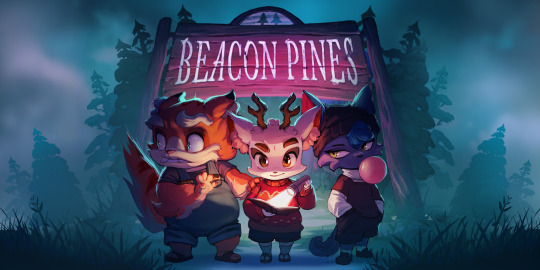
We open on a dimly lit room, a dark and thunderous night, the perfect atmosphere to immerse yourself in suspenseful literature. As Luck would have it, there is a book on the table... The world in the said "book" comes to life, exuding an aesthetic of childlike innocence teetering at the edge of Change (the scary unknown, the adult realm) but still literally confined within the pages of Fate. Also, the animal characters are cute.
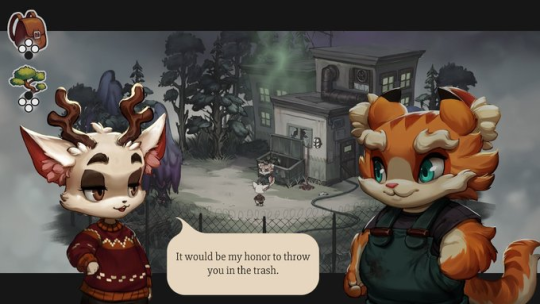
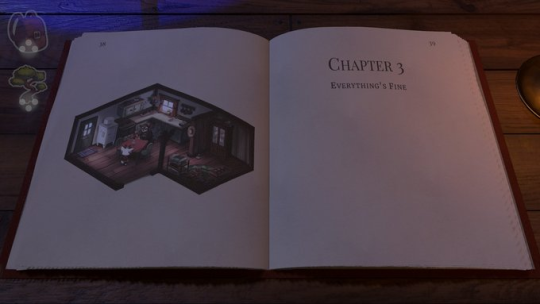
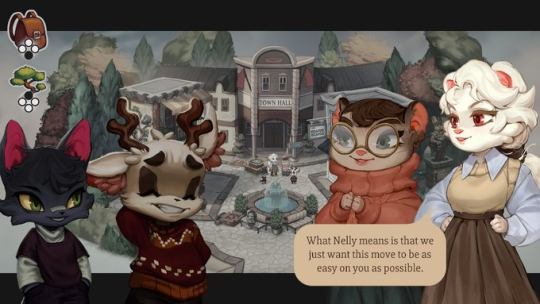
Beacon Pines is a branching path narrative game: it is presented as an old fashioned storybook with its setting sprouting into existence in the style of a Winnie the Pooh animation, lending credence to its Choose Your Own Adventure framing. This is, after all, a story about Change - as the narrator helpfully explains. Grounded in its thematic exploration yet increasingly more absurd as the stakes ramp up to eleven, the story does not have a single dull moment. You have yourself a solid Coming of Age tale juxtaposed to a Mid-Western town mystery. A classic recipe for gripping drama and comedy, in other words, enriched by its light choice-based gameplay to drive the point home. Did I mention the cast being cute?
-
8) Evil West (Flying Wild Hog/Focus Entertainment)
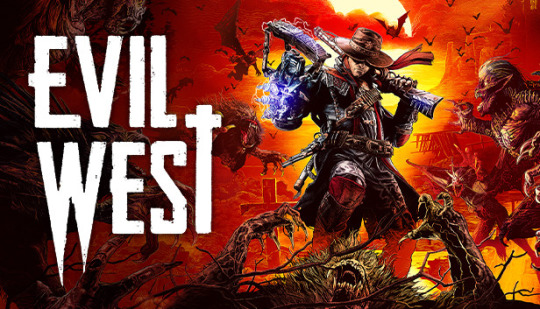
Do you find yourself in the mood for a cheesy yet gratuitously violent action game from fifteen years ago, which was in itself trying to emulate the energy of a Hollywood Summer blockbuster from up to twenty-five years ago? Do you think you would have enjoyed the strategic mayhem of DOOM Eternal more if it had a bigger emphasis on melee combat and it was in third person? Well then, the mad lads responsible for this next title have made a game specifically for you and it's about repelling blood-thirsty vampiric abominations in the old Wild West.
The plot is irrelevant, the writing is lackluster and the characters are flat but none of that is actually important. All that matters is the enticing gameplay, the crunchy action, the surprisingly luscious environments, being able to uppercut a guy into a wall of dynamite and the gallons upon gallons of gore. It's a viscerally good time.
-
7) SIGNALIS (Rose Engine Games/Playism/Humble Games)
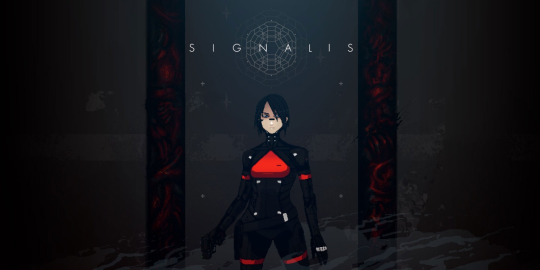
An unrelenting descent into a realm of madness filled with horrors beyond imagination - and a savvy injection of android anime babes, for good measure. SIGNALIS is a queer diegesis of "polygonally scarce" stylized 3D graphics with a coating of pixelated artistry, shaded just right, dragging you down to a figurative (and somewhat literal) Hellscape of the Mind. A morose narrative conveyed through Mood, Atmosphere. The design sensibilities display a subtle understanding of Horror as a genre: instilling a sense of claustrophobia and paranoia onto the player by limiting visibility, conjuring intrigue by revealing very little of its narrative and by fiddling with the sound design. The imagination is stimulated by the need to fill in the blanks, to find a sense of familiarity within the Unfamiliar, which in turn keeps you in suspense. It's the good old philosophy of "Less is More" competently applied to Survival Horror in ways I've not seen in a long time. I would best describe it as Ghost in the Shell meets Lovecraft in a John Carpenter's nightmare as told by David Lynch, all of which whilst still somehow being a classic Resident Evil game.
Now, I wouldn't go as far as to claim this title revolutionized the recipe for both its genre or the concept of metaphorical storytelling but it does add its own flavour to it, one that definitely leaves an aftertaste. You will be plunged into a world of sensorial deprivation that makes you fear the Unknown... and, perhaps, even the Known. SIGNALIS is quite good, indeed, both as a tribute to PS1-era spooky polygons and as a standalone horror diegesis that elevates its source material. Well, except for the obligatory puzzles for they are quite obnoxious, as per tradition. Other than that, it's a gripping tale of terror and the best version of itself. If this prospect appeals to you in any way then I simply cannot recommend it enough.
-
6) Inscryption: Kaycee Mod (Daniel Mullins Games/Revolver Digital)
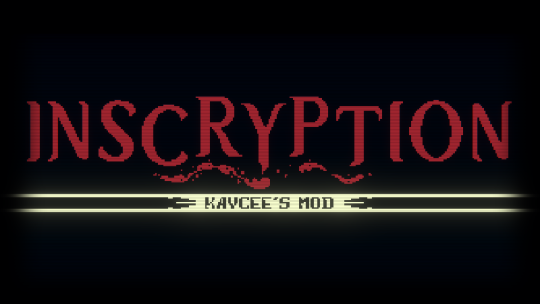
Developed by Daniel Mullins (of Pony Island infamy), this title was released last year to much "indie darling" acclaim and it is easy to see why. Mullins has a penchant for messing with the artifice of his medium of choice, deconstructing its foundations with layers upon layers of meta-text, games within games within games, which typically results in something memorable. If you already know what to expect from his creative vision then, in many ways, Inscryption is just more of the same soup: an explicit level of self-awareness, a conceit revolving on a specific gameplay loop that slowly expands and falls apart at the seams the more you explore it, to the point in which the world as we know it is obliterated. Right from the start, as in from the moment the game is booted up, one can tell something nefarious is at play as it coyly gestures towards a larger meta-narrative. You do not start a New Game, you "continue into a pre-existing save file", and that's merely the beginning. Like I alluded, I expected this loosely defined game to play out in a specific manner and, in a sense, I was not proven wrong about it. What's actually remarkable and unquestionably brilliant about it was the aforementioned core design loop, namely the deck building Roguelike experience that represents both the fictional and meta-fictional centrepiece of the entire onion-layered diegesis.
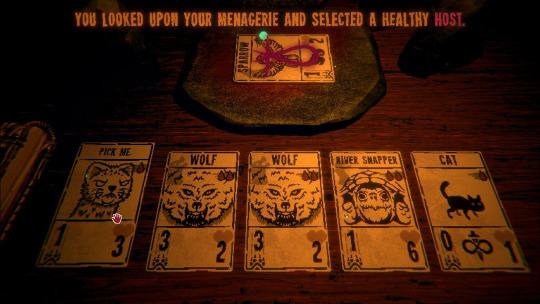
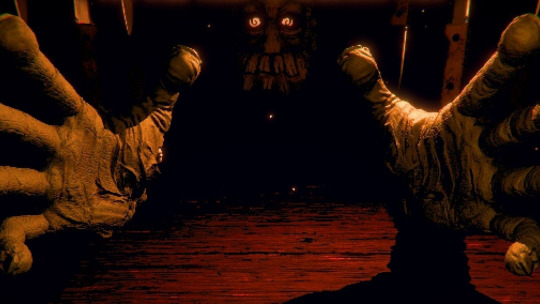
I'm going to go out on a limb and state with the utmost confidence bestowed upon me by my status as a white man on the Internet that Inscryption's card-based gameplay is more fun and addicting than Slay the Spire's, on the principle that I can actually beat it! Even more impressively, Mullins didn't simply design the best electronic card game imaginable, he went and remade it several more times in the course of the same playthrough. This opus presents some prescient questions about the player's engagement with the interactive medium of videogames, our emotional connection to the text, the escapist and possibly addicting nature of it, how it all reflects back on our psyche. As such, what better way to drive the point home than to create the most engaging, addicting, all-around rewarding core gameplay loop imaginable?
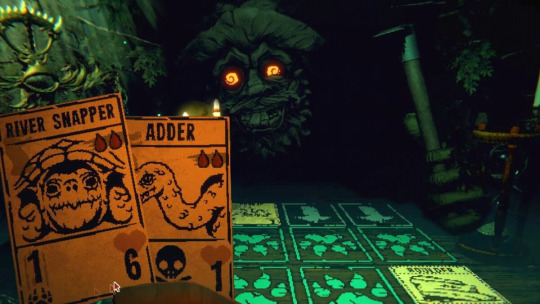
As if to be proven absolutely right, the author released a free DLC titled Kaycee Mod, which is essentially more of the same excellent deck building action but with added features, challenges and unlockable items. The "story" from the main game might have concluded in decisive fashion but that shan't stop us fans from wanting to play it until our eyes bleed and our fingers drop, firmly proving our unhealthy addiction to it. I've got to say, that new mod coming out this year makes for the perfect excuse to include Daniel Mullins' little masterpiece in an article about the best videogames of 2022. I have no shame and I'm technically right. Hurray!
-
5) Cult of the Lamb (Massive Monster/Devolver Digital)
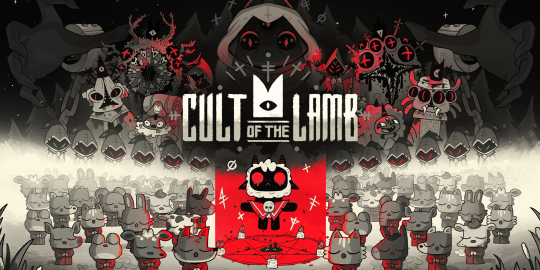
A functional, if somewhat uneven mishmash of Roguelike Hack/Slash gameplay with some direct, specific references to The Binding of Isaac and the Survival meets Tycoon Management Sim elements from a generation's worth of indie titles, yet its charm cannot be denied. In this game, you are a small critter tasked by a sinister god with a dubious agenda to take down all the other sinister gods with a dubious agenda, which is something you will only be able to accomplish by founding your own sinister cult with a dubious agenda - as it was the style at the time.
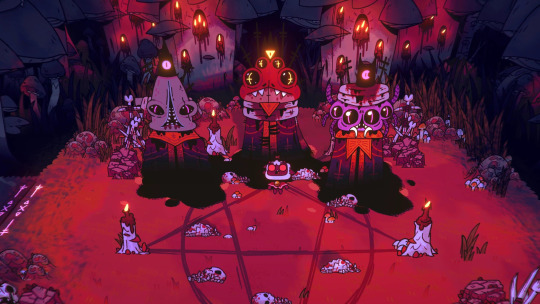
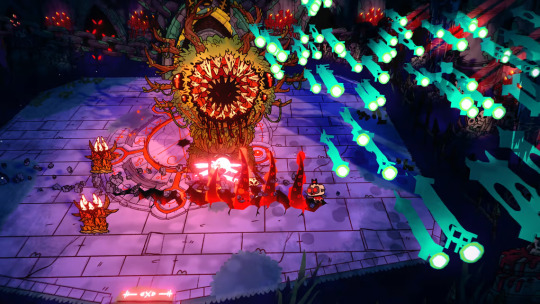
Its direction as well as its narrative, defined by the juxtaposition of "kid-friendly" aesthetics and cosmic horror, is evocative of a religious propaganda cartoon aimed at children, framing The Lamb as a heroic figure who fights the "Heretics." It helps contextualize the satire of organized religion, indoctrination, the sociopolitical use of Faith or a given set of beliefs as a means to gain and maintain Power - which can be easily applied to how Society operates at the highest, wealthiest levels. The way the player can "edit" and "upgrade" their respective cult may lead to the formation of a Fascist state controlled by Fear, a Capitalist dystopia, a Charlie Manson's murder hippie family or even a one-to-one recreation of the Catholic Church. Personally, I created a society where everyone is emotionally co-dependent to their beloved leader and are all too happy to work hard, pray and die in my name. When you step back and look at the big picture, the message of this game becomes distressingly poignant.
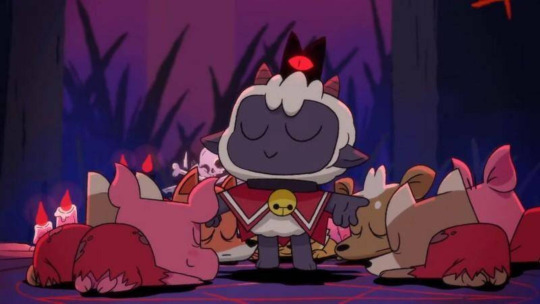
None of the little animals recruited in the cult are characters, merely a means to an end, a form of sustenance (literally, in some cases) to be feasted upon in order to endlessly accrue power until the day they perish, or even beyond. Simply put, cult-like mentalities and tactics don't exist merely within factual cults... Anyway, it's a fun game! The Lamb is legitimately adorable. The combat system is solid and the simulation aspects are involved, as described. You should definitely play it.
-
4) The Cruel King and The Great Hero (Nippon Ichi Software)
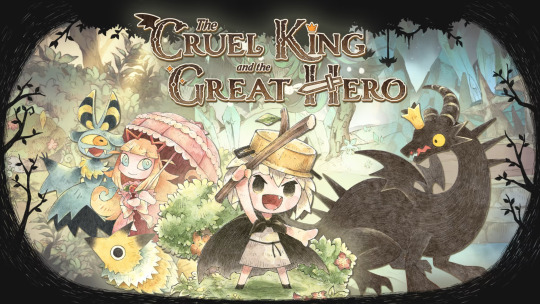
As a more than worthy successor to The Liar Princess and The Blind Prince, this game holds a tight grip on my heart, squeezing it for every ounce of blood and feeling. Unlike the previous game in the "series", which was a snazzy puzzle platformer, The Cruel King and The Great Hero is a classic turn-based RPG with a cute gimmick to it: you take control of Yuu (get it?), a small, enthusiastic child who dreams to become a legendary hero - a real one, mind you, unlike the make-believe flight of fancy in Lil Gator Game. Yuu's parent is a big dragon who secretly checks on her to make sure she's safe and sound whilst adventuring. He even provides special skills to help her in battle once she "unlocks them." This all serves a narrative purpose as well since he's trying to teach her what it means to be a kind warrior but still worries about her wellbeing, understandably. It's the sort of diegetic synergy between gameplay and plot that enhances one's experience with an interactive text, you see... So, anyway, this game is the cutest thing in the universe.
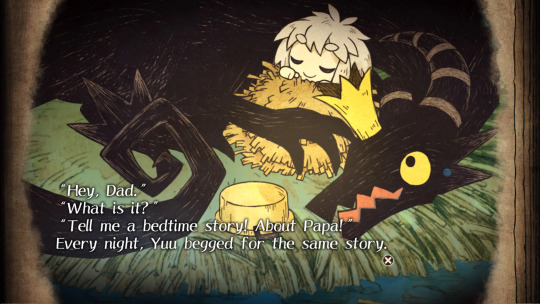
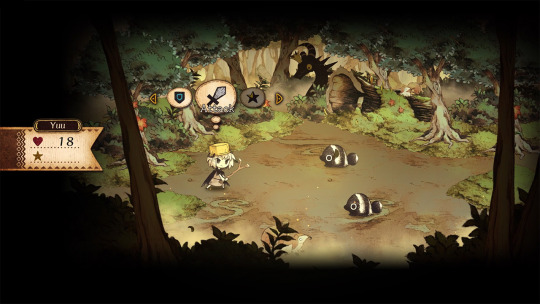
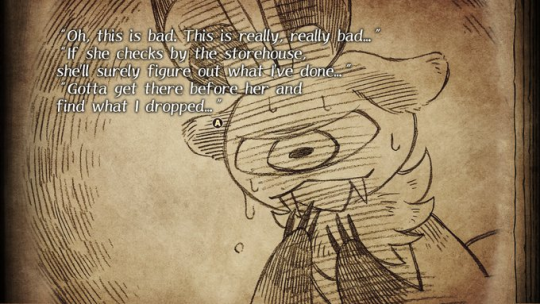
The deceptive simplicity of the artistic direction communes a deeper study behind the characters' presentation and their environment: a homage to illustrations from Western children's storybooks with its own twist. There is an understated insidiousness to the manner in which these adorable designs, drawn by hand, command such instantaneous affection on my behalf that cannot be expressed with words. Unlike said predecessor, the game has a much more ambitious scope and production but its narrative philosophy remains intact and focused. Cruel King plays around subversively with well-known fairytale tropes in order to craft an enjoyable, wholesome story for children and adults alike; it makes for a sort of "reverse-engineered" take on the Dragon Quest formula, I would say. The superb character drawings, the gorgeous background and overall aesthetics, the engaging plot as well as the gripping soundtrack, all converge together to form an emotionally enriching experience. In short, the game is neat. That's my review.
-
3) Kirby and The Forgotten Land (HAL Laboratory/Nintendo)
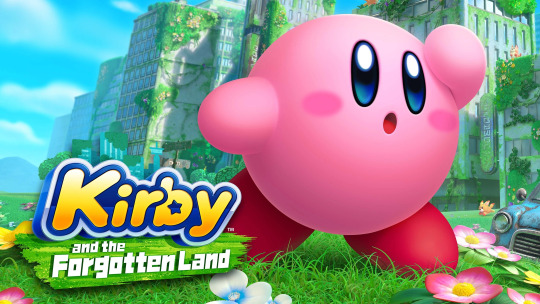
The experience of playing this game washes over me like a relaxing wave on the beach during a lazy summer day, unexpectedly stirring me up inside with childhood memories that are not mine. That is to say, Kirby and The Forgotten Land is so good it makes me cry tears of joy. I feel particularly drawn to the pink ball's universe due to its deceptive, duplicitous nature as both childlike and horrifying. There is a wondrous, nostalgic feeling juxtaposed to a much darker subtext. Parallel to a personal favourite of mine, Klonoa, it too lures the unsuspecting player with its bubbly cuteness, only to pull the rug from under them when it matters the most. Except, this title doesn't even bother to hide the existential dread beneath the narrative: the setting is literally a "colourful" post-apocalyptic, post-humanity world. The game only goes harder on it as it progresses. By the time you get to the final boss, and then the post-game final boss, and then the super-duper-ultra final FINAL Mega-Boss, the stakes couldn't possibly get more cosmic and the implications more dire.
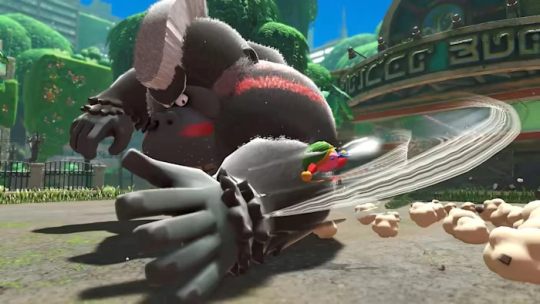
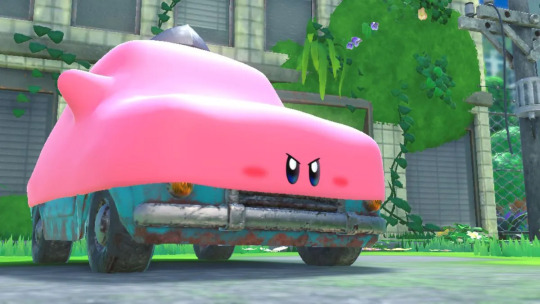
I shall now state in the strongest possible terms that Forgotten Land is a close-to-flawless, and long overdue, transliteration of the classic 2D "Kirby" formula into a 3D landscape, oozing with charm, personality and the most fun gameplay I have experienced all year - these were merely my first impressions after beating the first world, mind you! To call this the best, most enriching, most enjoyable 3D platformer I have ever touched would decisively sound like a loaded statement, one burdened by several asterisks. You could theoretically argue this game feels more like a very happy medium between Character Action titles such as Bayonetta and a core Nintendo IP of the precision jumping variety rather than a Platform experience in the "purest" sense but I am not here to indulge into that kind of hair-splitting logic. So, I will just proclaim once more that this is my favourite entry in the genre: the manner of onto-a-league-of-its-own videogame bonanza that leaves me reeling after almost breaking my controller during the last fight.
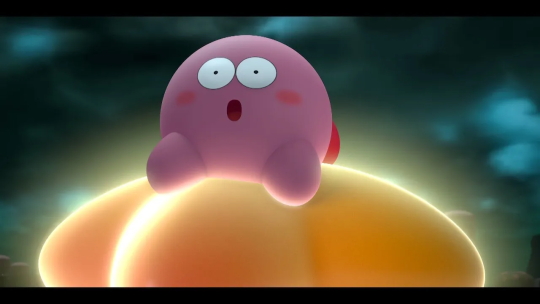
It features the tight, polish gameplay and level design one would expect from a (non-Pokemon related) Nintendo release jointed with the darkly charming, unabashedly bizarre creativity HAL Laboratory brings to the table with its adorably gluttonous mascot and its many game-altering power ups. I love this title, sincerely and desperately. It's everything I have ever wanted out of this series but never knew I craved.
-
2) Xenoblade Chronicles 3 (Monolith Soft/Nintendo)
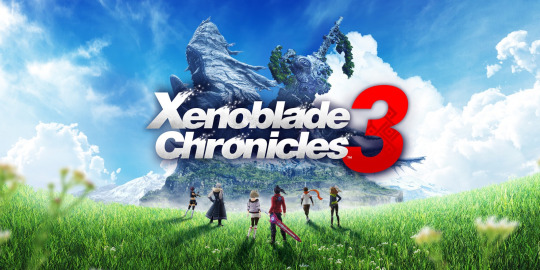
There is so much to say about Xenoblade Chronicles 3 and yet so very little time, so little light of day. I am going to take a page out of Monolith Soft and categorically refuse to bury the lead: this game is a condemnation of the Military-Industrial Complex, the endless machine of war sustained by the lives of those "who die for a cause." It's exemplified by the premise of genetically-engineered child soldiers made for the purpose of fighting in a senseless conflict which is perennially sustained by the literal life energy of the many people who die in it. War economy in a nutshell. This is not a spoiler as the game slaps you across the face with this commentary pretty much immediately. The second title in the series had the "courtesy" to lure you in with sassy cat girls and anime high jinks before revealing it was actually about Cultural Genocide. You simply do not get the luxury of ignorance with this entry.
It also unmistakably points its righteous anger towards the sociopolitical establishment, the wealthy conservative elite, that's directly profiting from the Status Quo, keeping the world stuck in an aptly-named “Endless Now.” On that note, the villains of the piece are a gloriously detestable, pretentious and opulent bunch, the kind you just cannot wait to smack around in an epically orchestrated boss battle - which the game is keen to provide with a certain amount of glee.
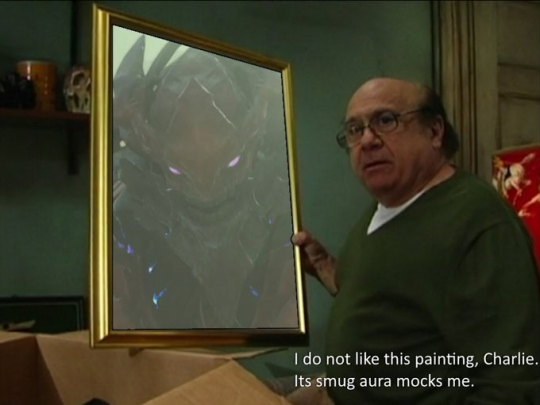
Thematic relevancy aside, allow me to emphasize how spectacular the “Xeno eXperience” can be! I am referring to the painstakingly animated, meticulously choreographed, expensively motion-capped action cutscenes that occasionally graced my astounded visage. There is nothing else that looks as slick and bombastic in all the land. The predecessor might have already set the benchmark for quality in that regard but the newest game takes said benchmark, shatters it with one finger and uses the sharp remains to stab God himself!
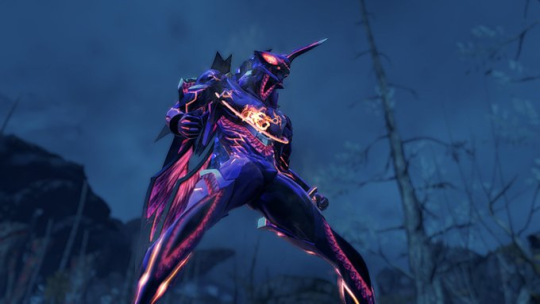
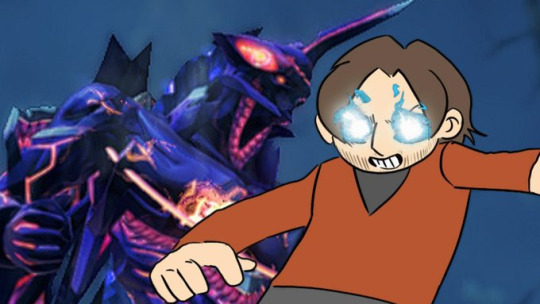
As far the gameplay is concerned, it is the most refined and polished the series has seen thus far even if it still requires an inordinate amount of tutorial tips in order to grasp its basics. A savvy combination of turn-based and real time elements make for both a strategic and high octane romp, one that requires your full concentration.
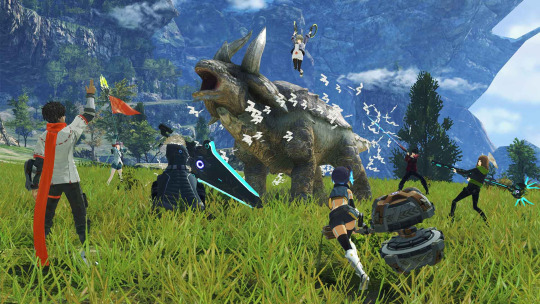
In essence, Xenoblade Chronicles 3 is the rare diegesis that manages to excel at everything it sets out to be: it's a foundationally strong JRPG with a vast, gorgeous world to explore, an emotionally resonating plot, viscerally effective theming, well-written characters and all the big anime fight scenes your heart may desire. It shoots for the Moon and it doesn't just stick the landing, it incinerates several celestial bodies in the process. Under normal circumstance, this would have easily been my GOTY. Alas, circumstances happened to differ a tiny bit in 2022.
-
-
-
1) Klonoa: Phantasy Reverie Series (MONKEYCRAFT/Bandai Namco)
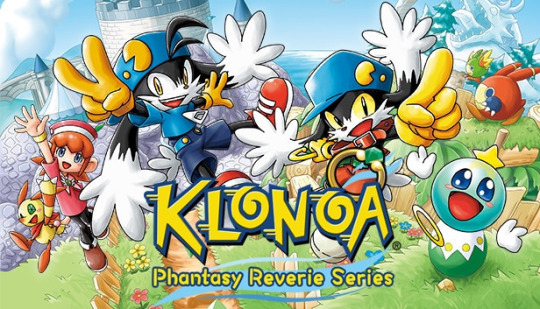
It was the year of 2009 and I happened to own a Nintendo Wii. I caught WIND of the then freshly released-into-obscurity remake of Klonoa: Door to Phantomile, a title for PS1. I, much like a lot of people, had never heard of such an odd curio but I found myself enticed by its design choices, its 2.5D aesthetics, its peculiar style of side-scrolling platform mixed with original puzzle mechanics and, most importantly, its adorable protagonist. Armed with but a few spare coins and a healthy dose of curiosity, I purchased it on its release day. It changed my life.
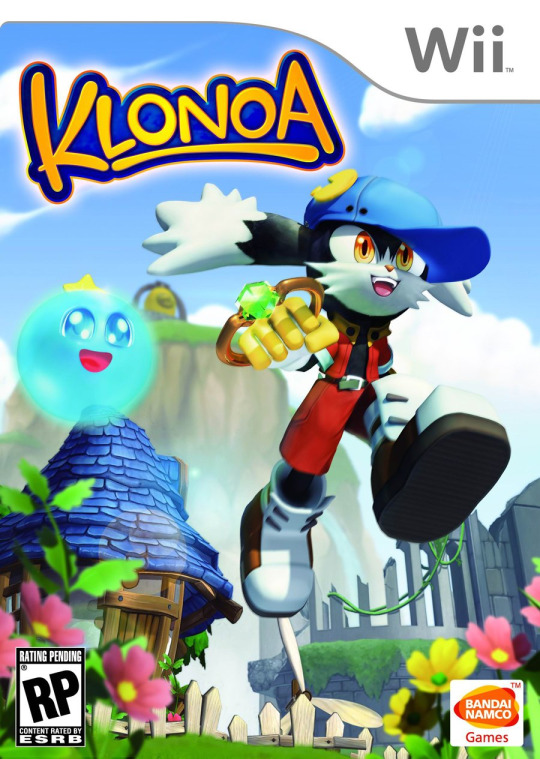
Later on, I hunted down the rare copy of the PS2 sequel Lunatea's Veil, a game that blew me out of every possible body of water on this planet. Several moons down the line, I bought the original first game as a digital download for PS3. Nowadays, I play it on my PSP whenever I'm overcome by a sudden wave of depression and every single time, I cry. Every variation of these games provided its own unique, emotional experience. They have indelibly coloured my perception of videogames as an art form, what they can bring to the table in terms of narrative and theming. I am incapable of conveying through words how much these games mean to me and how much they have broken and rebuilt me from the ground up with each new playthrough.
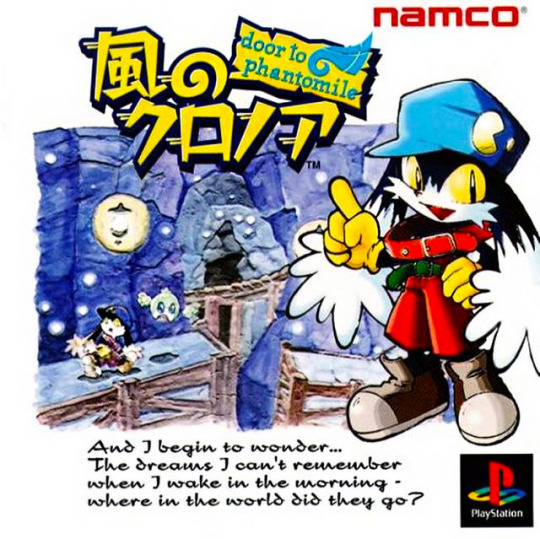
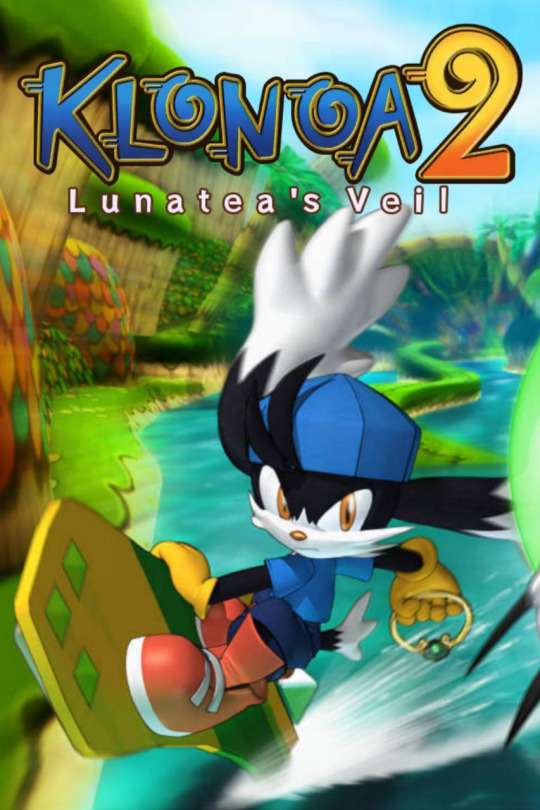
Klonoa is a multi-layered allegory disguised as a cute, Mascot Platformer from the late '90s. It uses genre expectations and its available language to pull the rug from the under the player, conveying a subtler thematic journey. It likens the idea of "gaming" to the idyllic memory of childhood and to the ethereal nature of dreams, which are all linked by their brevity and finality. The first game is about Nostalgia, the reminiscence to a time of childlike innocence inevitably broken by the specter of Change, part of growing up. Depending on one's read, it might also be about Trauma. The sequel takes everything that was established in the first one and builds itself upon it, bringing the journey to a satisfying conclusion. On the surface, it's a new story with new characters but that's, once again, part of the deception.
If Door to Phantomile covered Childhood and the bittersweet, possibly traumatic memory of it, Lunatea's Veil is about what comes next: Adolescence, growing up, figuring yourself out and healing. These themes are brilliantly reflected both by the story and the settings themselves. Both games would work well as individual experiences (as they are both fun and engaging) but they truly achieve greatness when viewed as a unified piece, a masterfully made, emotional ride into the Dream of Childhood and onto the Wake of Adulthood.
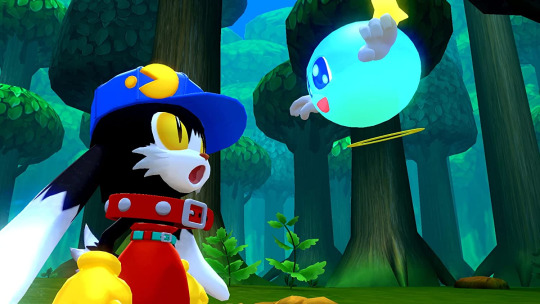

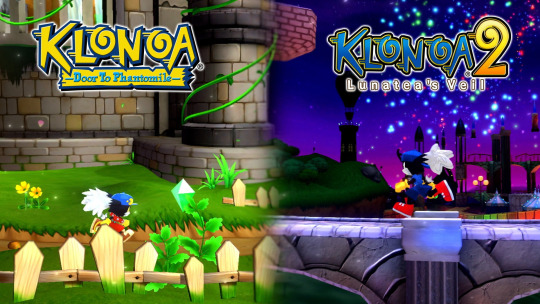
And now, you can finally experience them both in the newly released HD collection, Phantasy Reverie Series. This is my game of the year. This was always going to be my game of the year. It was preordained, predetermined, predestined in the moment, the second, its existence was made public in that one legendary Nintendo Direct. It didn't matter whether this was going to be a consistently good or terrible period for game releases, the mere fact that Klonoa was going to be included in the 2022 calendar makes this the best year for gaming by default. That is how much these titles, these stories, mean to me. The world is a slightly less awful place for having the fluffy boy in it. That is my final word on the matter.
-
At long last, here we are: the end of the list, the end of the solar cycle. In spite of everything that's wrong within society, struggling under the thumb of Capitalism, having to endure the abusive aura of hypocritical “Holyday Cheer”, dealing with many blows Life throws at your general direction, you have still made it. You have survived. You are still you. There is still good to be found beneath the apparent hopelessness of it all. Just remember to hold on to what's most dear to you and please, for the Love of God, do not buy the Nazi Potter game. I will find you.

Happy New Year!
.JPG)
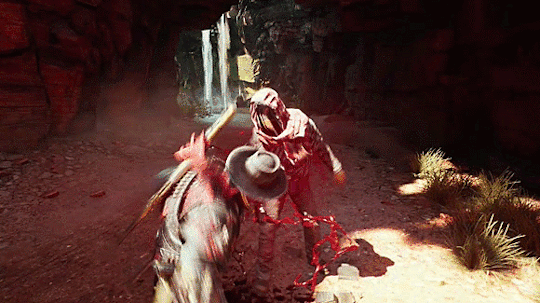
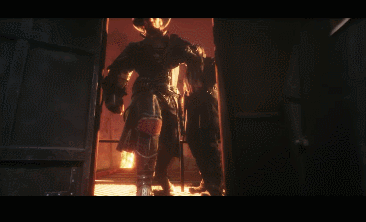
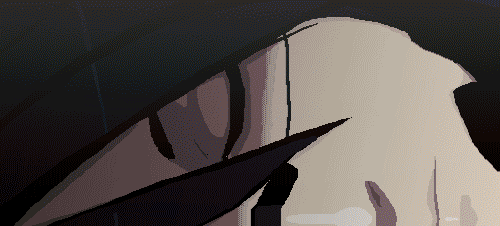
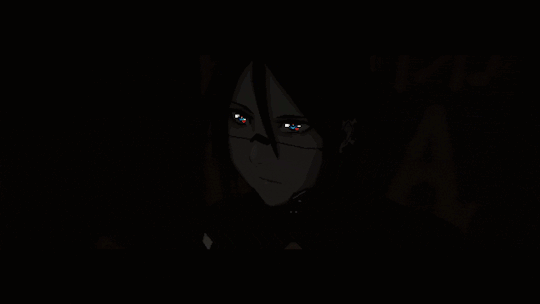
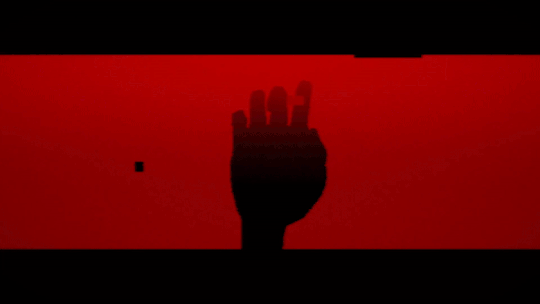
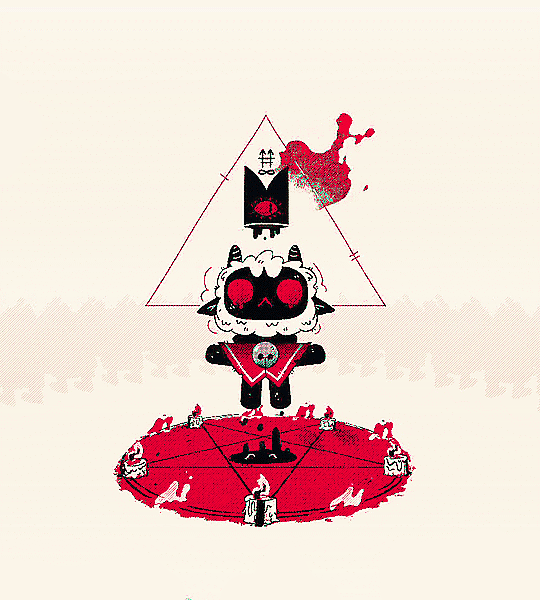
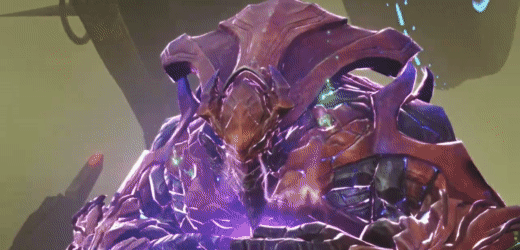
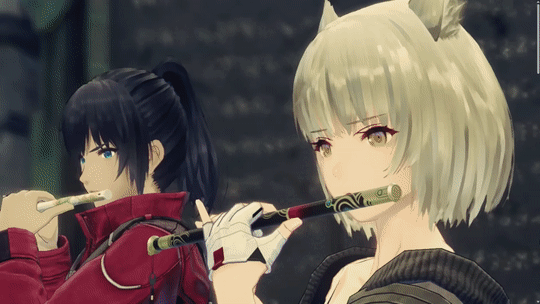
No comments:
Post a Comment